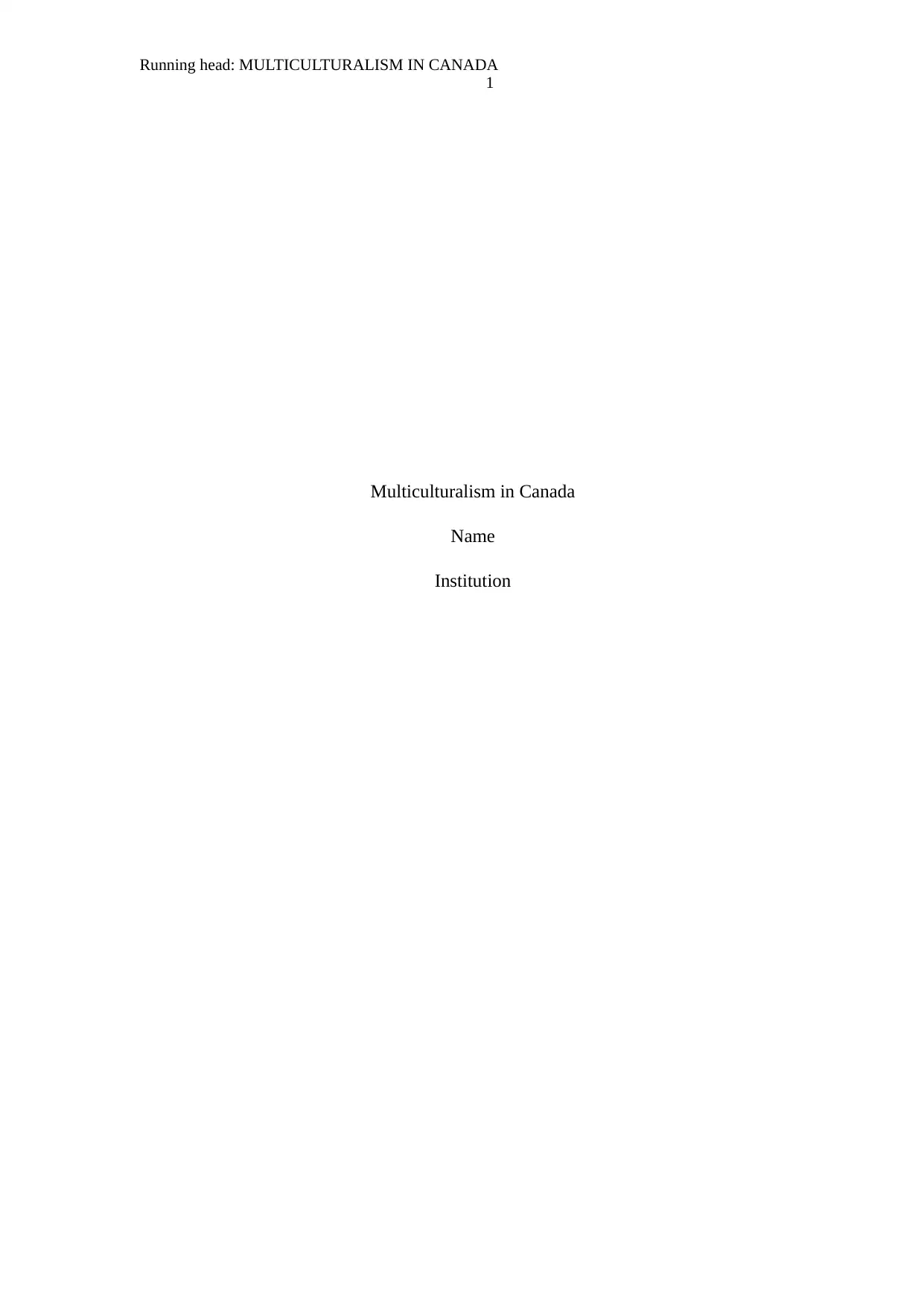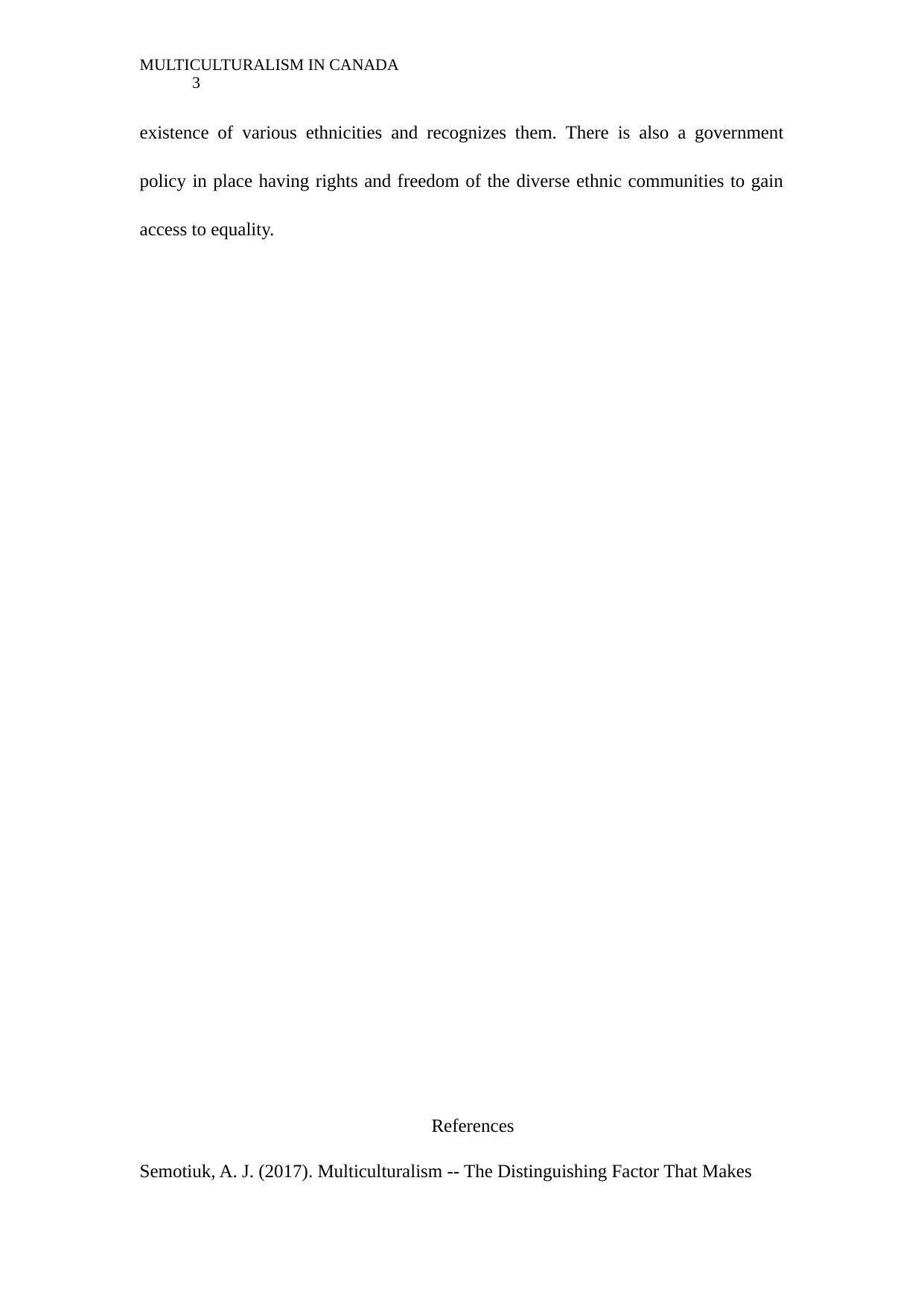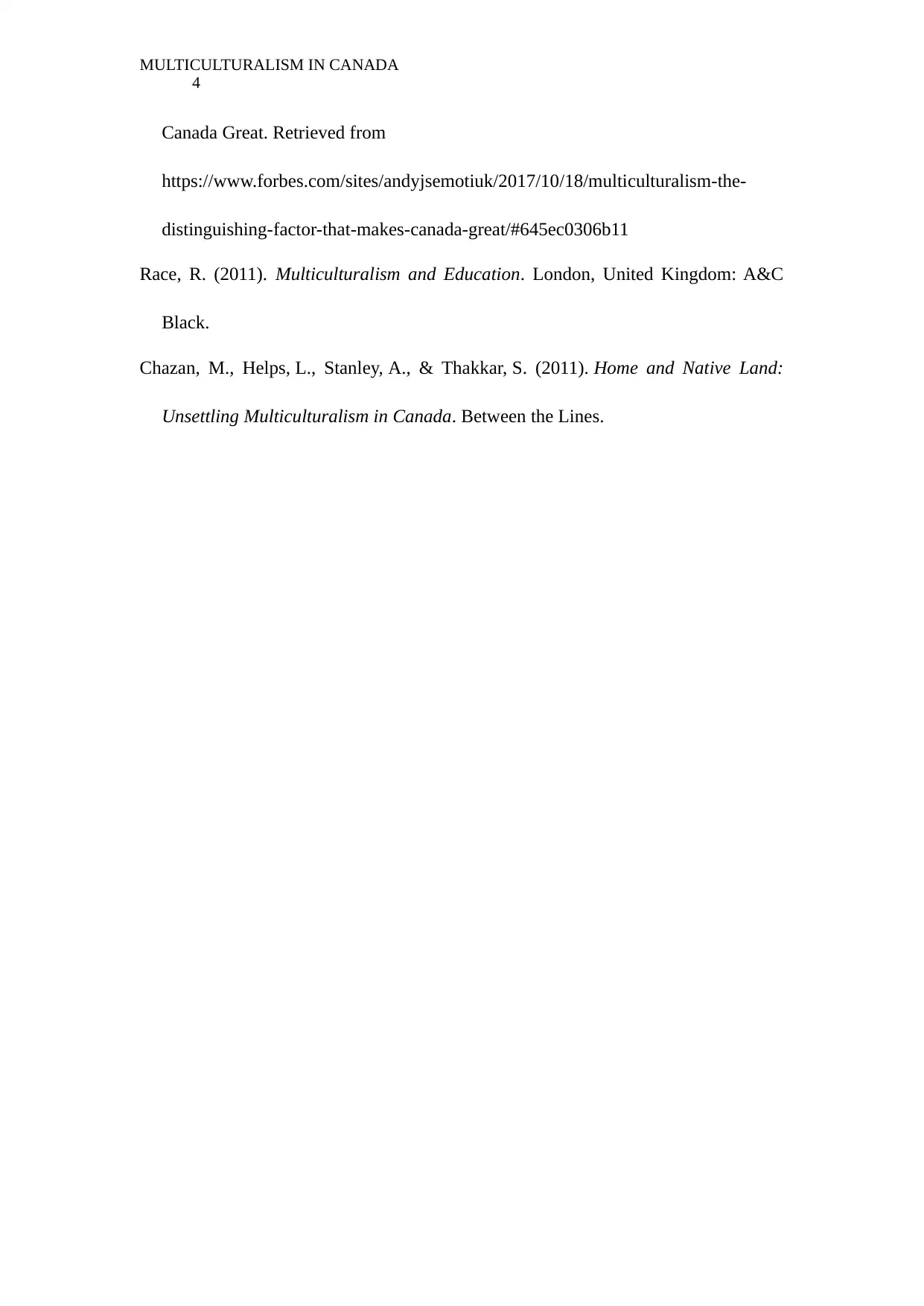Political Science: Discussion on Multiculturalism in Canada
VerifiedAdded on 2023/01/17
|4
|434
|70
Discussion Board Post
AI Summary
This discussion post evaluates the effectiveness of multiculturalism in Canada. The author argues that unlike Britain, Canada's multiculturalism has been successful since its official recognition in 1971 by Prime Minister Pierre Trudeau. The post highlights the diverse ethnic groups contributing to Canadian culture and identity, emphasizing the absence of multicultural groups and the presence of open ethno-cultural communities. It also discusses the importance of immigrants and refugees in the country's economic development, the establishment of policies to protect their rights, and Canada's commitment to equality and diversity. The author references several sources to support their claims, including Forbes articles and academic publications on multiculturalism and education. The post addresses the strengths of Canada’s multiculturalism project and opportunities for improvements.
1 out of 4











![[object Object]](/_next/static/media/star-bottom.7253800d.svg)